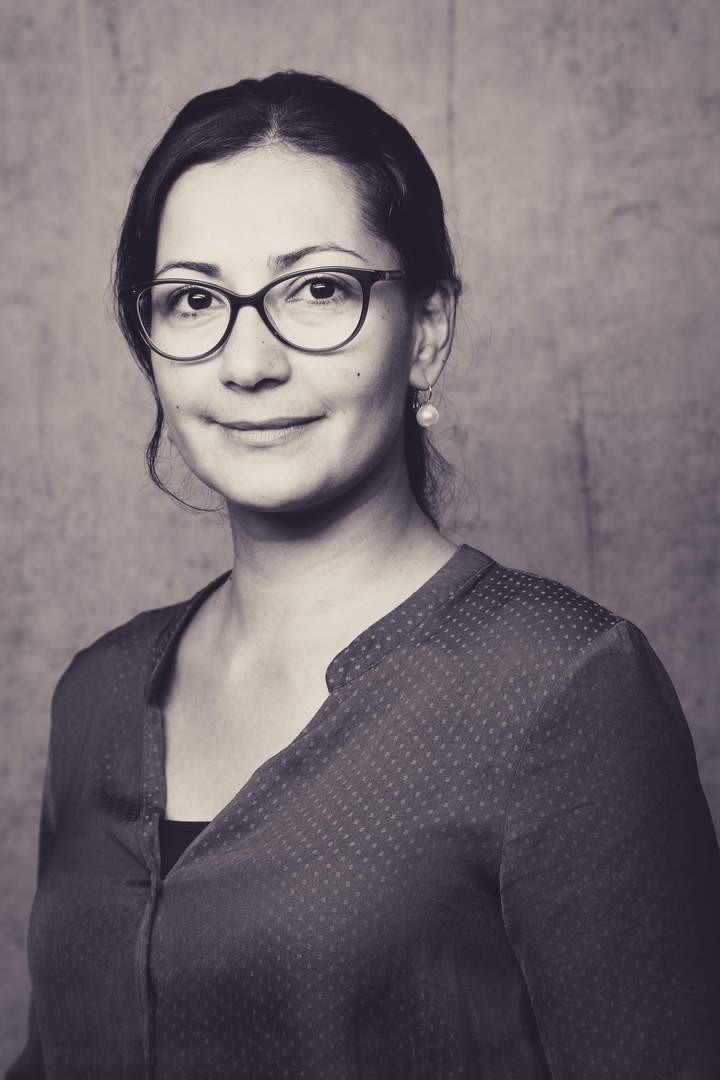Mimicking Nature: Mariana Medina-Sánchez joins B CUBE as a DRESDEN-concept Research Group Leader
07.06.2022
The new “Micro and nano-Biosystems” group led by Dr. Mariana Medina-Sánchez aims to create remotely controlled microrobots inspired by nature. The DRESDEN-concept research group was formed jointly between the B CUBE – Center for Molecular Bioengineering at TU Dresden and the Leibniz Institute for Solid State and Materials Research Dresden (IFW). The group officially started on June 1.
Targeted drug delivery into specific tissues or even into specific cells seems futuristic. However, the scientists from the new DRESDEN-concept research group led by Dr. Mariana Medina-Sánchez are already laying foundations for such technologies. The group specializes in medical microrobotics. By joining the B CUBE, the team aims to collaborate with experts in cellular and molecular motility to build tiny robots whose motion is inspired by nature.
“Microdevices, you can also call them microrobots, that transport cells or molecules through our body represent a great technological and scientific challenge,” says Dr. Medina-Sánchez. “The physiological conditions in our bodies are really demanding. Our bloodstream is a pipeline of tiny confined spaces filled with thick fluids like blood or lymph. We need new, innovative ideas to build devices that perform robustly in such conditions.”
Bioinspired Ciliated Robots
To build machines that navigate and swim effectively through a labyrinth of viscous fluids, scientists do not need to figure it all out by themselves. They can draw inspiration from the tiny experts: the microorganisms.
“Micro-algae, ciliates, and other single-cell organisms have cilia – special microscopic projections that bend rhythmically, generate waves, and in such a way propel these cells through liquids,” says Dr. Veikko Geyer, senior scientist in Diez Group at the B CUBE and expert in cellular motility.
Dr. Medina-Sánchez and her team plan to take advantage of the solutions developed by nature and build small-scale platforms based on cilia. Such platforms can be used to create remotely controlled microrobots that move in physiological conditions.
Interdisciplinary Approach
“We are very happy to welcome Dr. Medina-Sánchez to the B CUBE,” says Prof. Yael Politi, managing director of the institute. “Biomimicking is one of three core pillars of research at our institute. The new projects brought by the Medina-Sánchez group fit perfectly with our long-term interests and provide us with an opportunity to venture out into the world of microrobotics.”
The projects envisioned by Dr. Medina-Sánchez require the collaboration of scientists from a variety of fields, both experimental and theoretical. Dr. Veikko Geyer and his colleagues in the Diez group at the B CUBE will share their vast experience in working with biological cilia. The group will provide the know-how on cutting-edge technologies that could be used to provide cilia with specific functions and analyze them using high-throughput and ultra-fast imaging. Another important aspect of research is the fundamental understanding of the physics of cilia. Here, Prof. Benjamin Friedrich and his group at the Cluster of Excellence Physics of Life (PoL) will support the projects with their expertise in theoretical physics and predictive modeling.
About Dr. Mariana Medina-Sánchez
Mariana Medina-Sánchez holds a Master’s degree in Nanotechnology. In 2013, she graduated with a PhD in Biotechnology from the Autonomous University of Barcelona, Spain. She moved to Dresden in 2014 and joined the Institute for Integrative Nanosciences (IIN) at the Leibniz Institute for Solid State and Materials Research Dresden (IFW) as a postdoctoral researcher. Her work focused on sperm-carrying micromotors and ultracompact rolled-up biosensors. Since 2016, she is a research group leader at the IIN and IFW. Her group “Micro- and Nanobiomedical Engineering” specializes in medical microrobotics and biosensing microfluidic platforms. In 2020 her research was funded by the competitive European Research Council Starting Grant.
About B CUBE – Center for Molecular Bioengineering
B CUBE – Center for Molecular Bioengineering was founded as a Center for Innovation Competence within the initiative “Unternehmen Region” of the German Federal Ministry of Education and Research. It is part of the Center for Molecular and Cellular Bioengineering (CMCB). B CUBE research focuses on the investigation of living structures on a molecular level, translating the ensuing knowledge into innovative methods, materials and technologies.
Web: www.tu-dresden.de/bcube
About Leibniz Institute for Solid State and Materials Research Dresden (IFW)
The IFW Dresden is a legally independent, non-university research institution and member of the Leibniz Association. The Institute’s mission is to explore the physics, chemistry, and function of new materials and to generate innovations from new discoveries. The focus is on the level of molecules, atoms, and electrons, which are governed by the laws of quantum physics as well as nanotechnological laws.
Web: www.ifw-dresden.de
About DRESDEN-concept
DRESDEN-concept is the research alliance of TU Dresden and local extramural research and cultural institutions. A total of 33 partner institutions have joined forces in the association to bundle synergies and jointly develop the Dresden science hub into a DRESDEN-concept Science and Innovation Campus.
The acronym DRESDEN stands for Dresden Research and Education Synergies for the Development of Excellence and Novelty and emphasizes the focus of the collaboration: by networking across the boundaries of institutions and subjects, DRESDEN-concept offers researchers an ideal place for science and innovation.
Web: www.dresden-concept.de
 © Mariana Medina-Sánchez
© Mariana Medina-Sánchez
Scientific Contact:
Dr. Mariana Medina-Sánchez
E-mail: m.medina.sanchez@ifw-dresden.de
Group website: http://www.mnbe.org